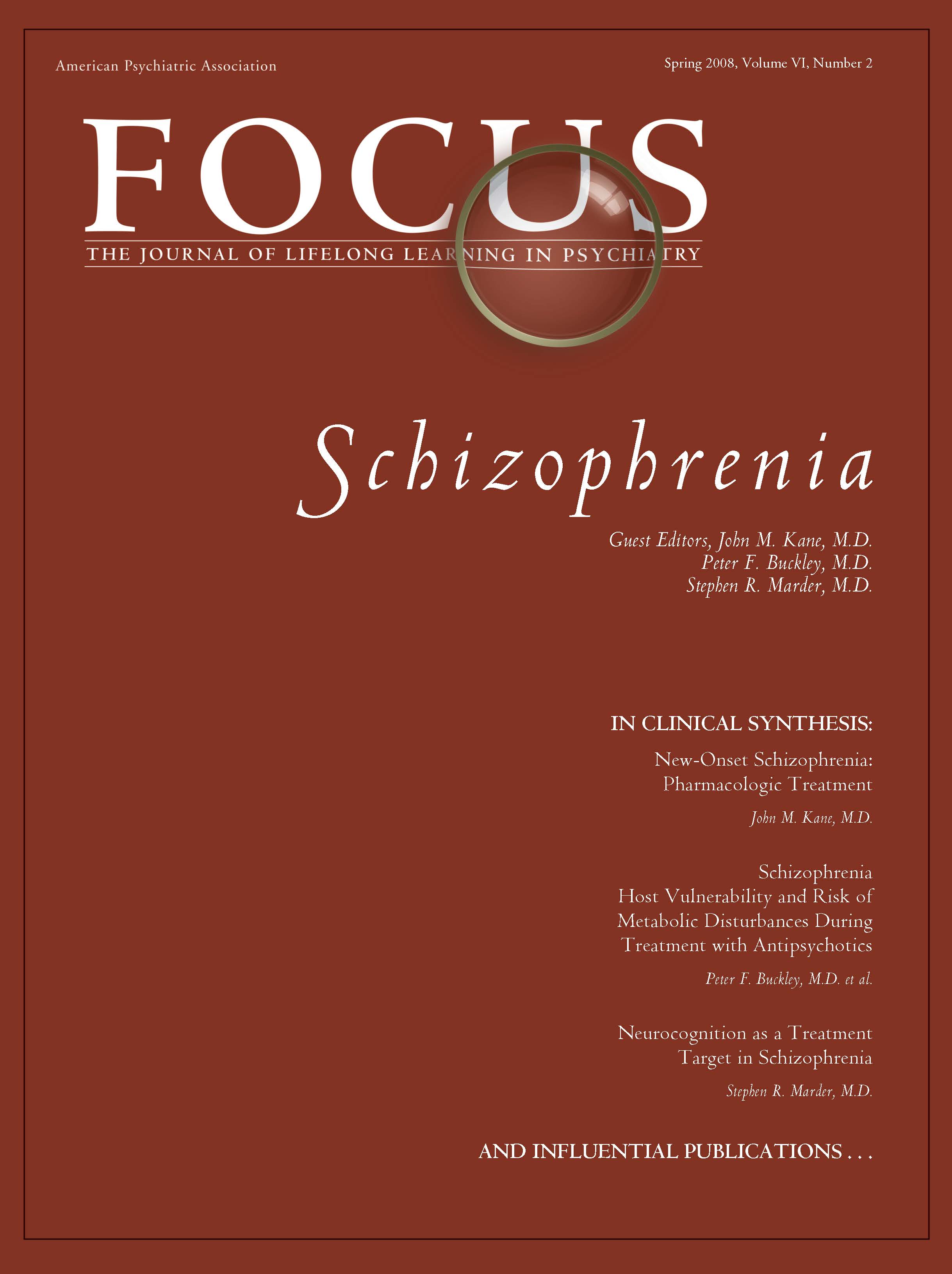Neurocognition as a Treatment Target in Schizophrenia
Abstract
Recent attention has focused on the limitations of current antipsychotic medications for improving community functioning in schizophrenia. The strong relationship between neurocognition and functional outcome has led to a focus on developing pharmacological agents that improve cognition. The potential of this target led to a National Institute of Mental Health initiative known as Measurement and Treatment Research to Improve Cognition in Schizophrenia (MATRICS). Through a series of consensus meetings that included representatives from academia, the pharmaceutical industry, and government, this initiative has developed a consensus battery of neuropsychological tests that can be used as an outcome measure in clinical trials, a pathway to drug approval that has been endorsed by the U.S. Food and Drug Administration, a priority list of molecular targets for new drug development, and a consensus regarding the design of clinical trials.



